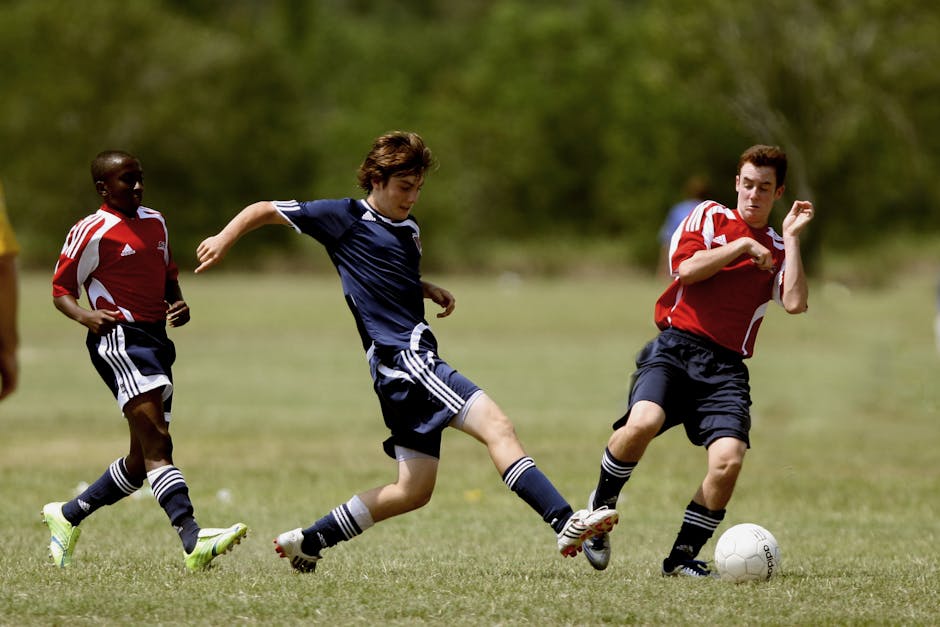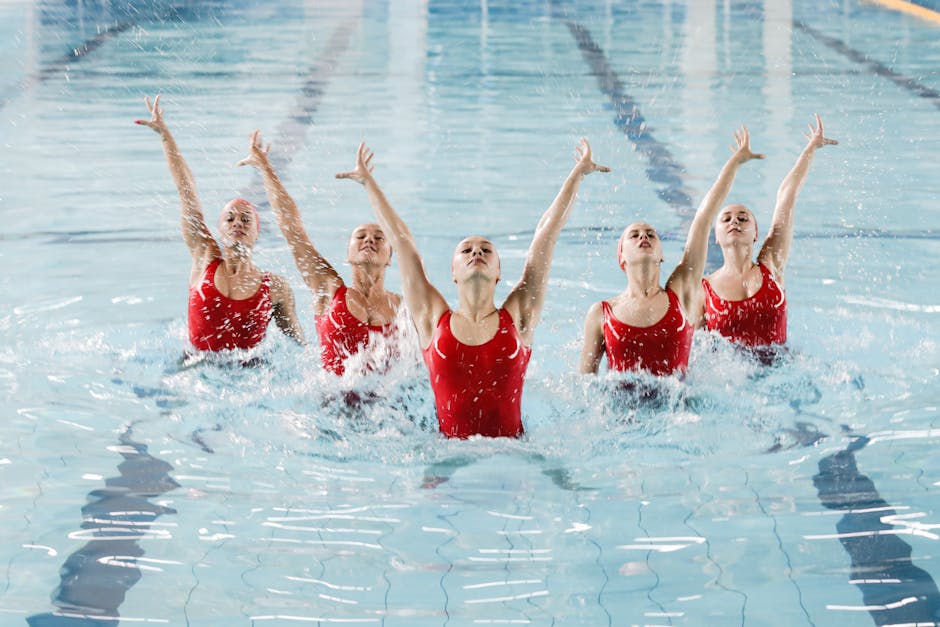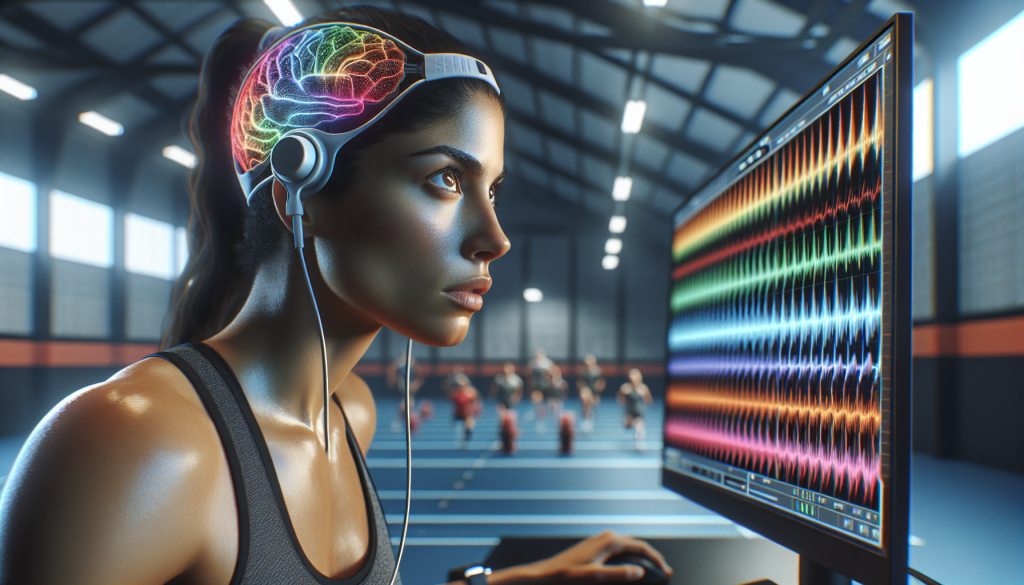The question of whether neurofeedback training can enhance peak performance in athletes is a fascinating one. This blog post will delve into the science behind neurofeedback, its potential benefits for athletes, and how it is being implemented in the sports world. Intrigued? Keep reading to discover how this cutting-edge technology could revolutionize athletic performance.
Key Takeaways
- Neurofeedback training can potentially enhance athletic performance by improving focus, reducing stress, and speeding up reaction times.
- The science behind neurofeedback involves monitoring brainwaves and providing real-time feedback to improve brain function.
- Dr. Robert Reiner has made significant contributions to the field of neurofeedback training for athletes.
- Implementing neurofeedback training involves personalized programs and regular training sessions.
- Future research and applications of neurofeedback in sports are promising.
Introduction to Neurofeedback Training
Definition and Overview
Neurofeedback training is a type of biofeedback that uses real-time displays of brain activity to teach self-regulation of brain function. It involves monitoring brainwaves, usually via an EEG (electroencephalogram), and providing feedback to the individual about their brainwave patterns.
Relevance to Athletic Performance
Athletes are always looking for ways to improve their performance, and neurofeedback training offers a novel approach. By learning to control their brainwaves, athletes may be able to enhance focus, manage stress and anxiety more effectively, and improve reaction times.

The Science Behind Neurofeedback Training
Brainwave Monitoring
The first step in neurofeedback training is to monitor the individual’s brainwaves. This is typically done using an EEG, which measures electrical activity in the brain. The data is then analyzed to identify patterns and areas for improvement.
Real-time Feedback Mechanism
Once the brainwaves are being monitored, the individual receives real-time feedback about their brain activity. This can take various forms, such as a video game that responds to the individual’s brainwave patterns. The goal is to train the brain to produce more desirable brainwave patterns.
Impact on Brain Function
Neurofeedback training can have a significant impact on brain function. By learning to control their brainwaves, individuals can potentially improve various aspects of cognitive performance, such as attention, memory, and emotional regulation. This can be particularly beneficial for athletes, who need to perform at their best under high-pressure situations.

Dr. Robert Reiner’s Contributions
Background and Expertise
Dr. Robert Reiner is a leading expert in the field of neurofeedback training. He has been involved in the field for over 30 years and has made significant contributions to its development and application.
Innovations in Neurofeedback for Athletes
Dr. Reiner has been instrumental in applying neurofeedback training to the field of sports. He has developed innovative training programs that are tailored to the needs of individual athletes, focusing on areas such as focus, stress management, and reaction times.
Role at Behavioral Associates
At Behavioral Associates, Dr. Reiner leads a team of professionals who provide neurofeedback training for athletes. They use state-of-the-art technology and personalized training programs to help athletes reach their peak performance.

Benefits of Neurofeedback Training for Athletes
Enhanced Focus and Concentration
One of the key benefits of neurofeedback training for athletes is enhanced focus and concentration. By learning to control their brainwaves, athletes can potentially improve their ability to focus on the task at hand, which is crucial for peak performance in sports. This aspect of neurofeedback training is further discussed in our article on improving attention and focus.
Improved Stress and Anxiety Management
Another potential benefit of neurofeedback training for athletes is improved stress and anxiety management. High-pressure situations are common in sports, and being able to manage stress and anxiety effectively can make a significant difference in performance.
Faster Reaction Times
Neurofeedback training may also help athletes improve their reaction times. By training their brains to respond more quickly and efficiently, athletes can potentially gain a competitive edge in their sport.

Implementation of Neurofeedback Training
Personalized Training Programs
Tailoring to Individual Athlete Needs
Every athlete is unique, and so are their training needs. Neurofeedback training programs can be personalized to address the specific needs and goals of each athlete. This can involve focusing on specific brain areas, such as those involved in focus or stress management.
Focus on Specific Brain Areas
Different brain areas are involved in different aspects of cognitive performance. By focusing on specific brain areas, neurofeedback training can be tailored to improve the aspects of performance that are most relevant for each athlete.
Process and Duration of Training Sessions
The process and duration of neurofeedback training sessions can vary depending on the individual’s needs and goals. However, regular training sessions are typically recommended to achieve the best results. You can learn more about the process in our overview of the neurofeedback training process.

Case Studies and Success Stories
Examples of Athletic Performance Improvement
There are numerous examples of athletes who have seen improvements in their performance after undergoing neurofeedback training. These success stories provide compelling evidence of the potential benefits of this approach.
Testimonials from Athletes at Behavioral Associates
Many athletes at Behavioral Associates have shared their positive experiences with neurofeedback training. Their testimonials highlight the potential of this approach for enhancing athletic performance.
Future Directions in Neurofeedback for Peak Performance
Research Trends
Research into neurofeedback training and its potential benefits for athletes is ongoing. Current trends suggest that this approach has a promising future in the field of sports performance.
Potential New Applications in Sports
As our understanding of the brain and its function continues to grow, new applications of neurofeedback training in sports are likely to emerge. This could include new ways to enhance performance, prevent injury, and improve recovery times.

Conclusion
Summary of Benefits
In conclusion, neurofeedback training offers a promising approach for enhancing peak performance in athletes. By improving focus, managing stress and anxiety, and speeding up reaction times, this technique could revolutionize the way athletes train and perform.
Final Thoughts on Neurofeedback’s Role in Sports
While more research is needed to fully understand the potential of neurofeedback training in sports, the current evidence is promising. As we continue to explore the capabilities of the human brain, the future of sports performance looks bright. For more insights into the future prospects of neurofeedback, check out our article on the future prospects of neurofeedback and advancements in the field.
Sources:
– Peak Performance: Neurofeedback for Athletes
– Neurofeedback Therapy for Peak Performance
– Neurofeedback for Peak Performance
Unlock Your Athletic Potential: FAQs on Neurofeedback Training for Peak Performance
What is neurofeedback training?
Neurofeedback training, also known as EEG biofeedback, is a non-invasive method that helps individuals learn how to alter their brain activity. It involves monitoring the brain’s electrical activity through sensors placed on the scalp and providing real-time feedback to the user. This feedback helps individuals learn to control or modify their brain waves, potentially leading to improved cognitive functions, focus, and overall mental performance.
How can neurofeedback training enhance an athlete’s performance?
For athletes, peak performance is not just about physical condition but also mental readiness. Neurofeedback training can enhance an athlete’s performance by improving focus, reducing anxiety, and enhancing the ability to enter ‘the zone,’ a state of flow where they perform at their best. By learning to control their brain waves, athletes can potentially improve reaction times, decision-making, and stress management, all of which are crucial for competitive success.
Is neurofeedback training scientifically proven?
Yes, there is scientific evidence supporting the benefits of neurofeedback training for various applications, including improving attention, reducing anxiety, and enhancing cognitive performance. Research in sports science has also shown promising results, with studies indicating that neurofeedback can improve aspects of athletic performance. However, outcomes can vary, and more research is needed to fully understand its effectiveness for specific sports and performance goals.
How long does it take to see results from neurofeedback training?
The time it takes to see results from neurofeedback training can vary depending on the individual, the specific goals of the training, and the frequency of sessions. Some individuals may notice improvements in their focus and performance within a few sessions, while for others, it may take several weeks or months of consistent training. Generally, a minimum of 10 to 20 sessions is recommended to experience noticeable benefits.
Can neurofeedback training replace traditional training methods for athletes?
Neurofeedback training is not intended to replace traditional physical and mental training methods for athletes but rather to complement them. It offers a unique approach to enhancing mental aspects of performance that traditional training methods may not directly address. Incorporating neurofeedback into a comprehensive training program can provide a holistic approach to improving both physical and mental aspects of performance.
Are there any risks associated with neurofeedback training?
Neurofeedback training is generally considered safe for most people, as it is non-invasive and does not involve medication. However, like any training program, it should be conducted under the guidance of a trained professional. In rare cases, individuals may experience temporary discomfort, such as headache or fatigue, following a session. It’s important to communicate with the practitioner to adjust the training as needed.
Can neurofeedback training be used for injury recovery in athletes?
While neurofeedback training primarily focuses on improving mental performance, it can also play a role in the recovery process from sports-related injuries. By reducing stress and anxiety, improving sleep patterns, and enhancing overall mental resilience, neurofeedback can support the recovery process. Additionally, for injuries affecting cognitive functions, such as concussions, neurofeedback may help in the rehabilitation of those cognitive aspects.
How can an athlete get started with neurofeedback training?
To get started with neurofeedback training, an athlete should seek out a certified neurofeedback practitioner or a sports performance center that offers the service. An initial assessment is usually conducted to determine the athlete’s goals and to develop a personalized training plan. The practitioner will guide the athlete through the training sessions, providing feedback and adjusting the program as needed to achieve the best results.



